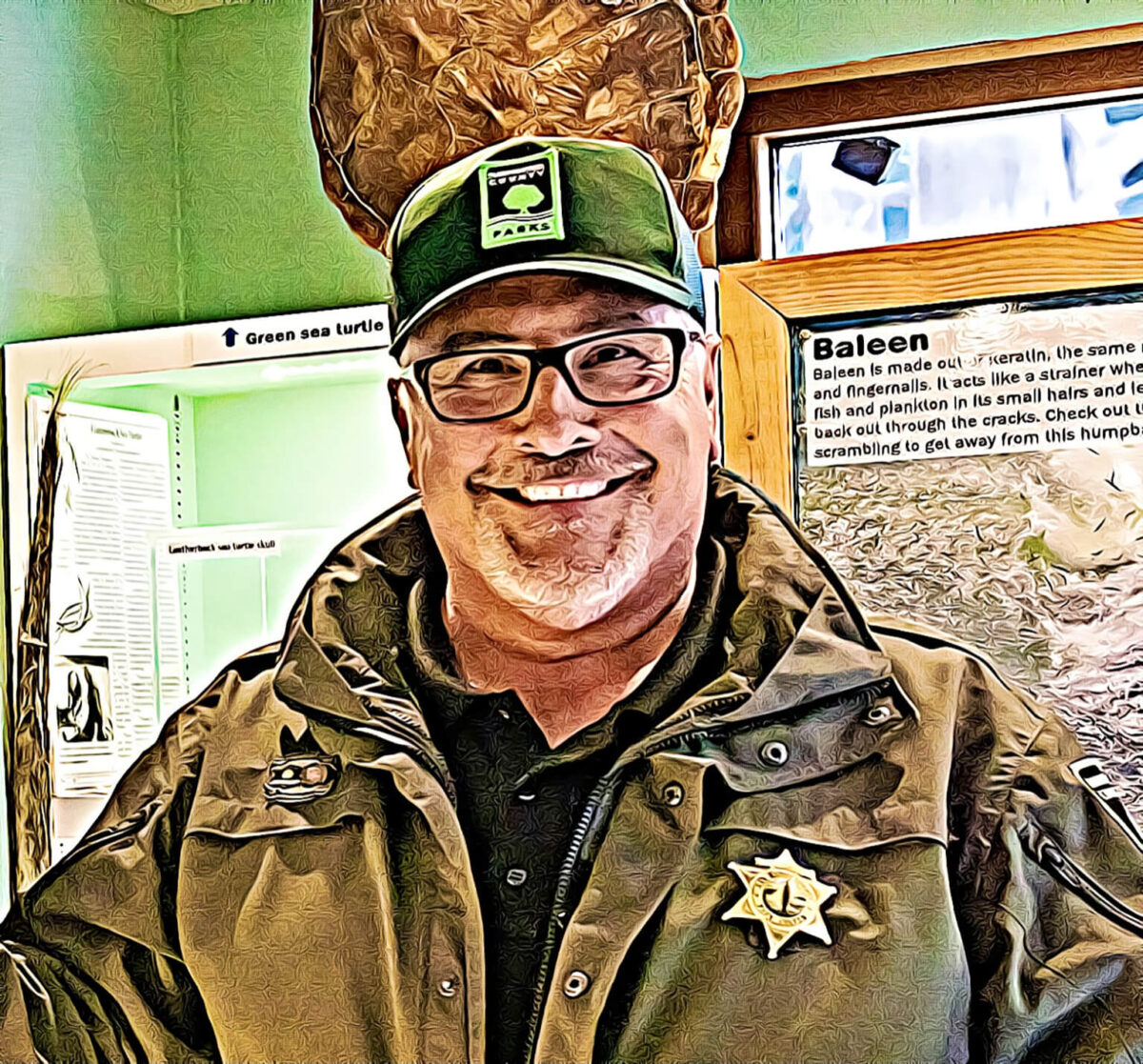A San Mateo County park ranger shares Fitzgerald Marine Reserve’s elusive equivalent of Bigfoot, what was great about growing up in San Mateo and his favorite weird sea critter fact.
What motivated you to become a ranger?
Yogi bear! I wanted to talk to the animals when I was a kid. [Laughs.] I have always spent time in the wild…traveling, hiking, camping, exploring the desert and mountains. For me, communicating nature observations is a dream job. I have worked in the tech sector, but once I explored the natural world professionally, I realized it’s where I’m happiest.
Where did you grow up and what was great about it?
San Mateo, on a cul-de-sac. It was so lively with kids. We were always outside—playing capture the flag, climbing trees and even light poles! Riding my bike across the bridge on Hillsdale Boulevard into Foster City was like a monumental road trip for an eight-year-old!
Do you have a favorite season at Fitzgerald Marine Reserve?
Spring pupping season! There is so much activity in the pinniped population with seal pups being born into the sea world. Sometimes we have over 175 animals on the main beach congregating and finding mates.
Most people turn to nature as an escape from their jobs. What’s your outlet when you need a break?
Movies and music! I enjoy the creative process. I love recording my own songs and enjoy watching independent cinema and quality films online.
What is the weirdest thing you’ve ever eaten?
Silkworms. A crunchy treat in southeast Asia.
What’s guaranteed to make you laugh?
Nextdoor.
What are some pro tips for tide pooling?
The best tides are minus low tides, which means anything below 0. Wear decent shoes. Find a pool and be still. Let the animals reveal themselves. They are often very small but have big personalities.
What do you collect?
Random souvenirs from odd places…like trilobites and gemstones from the Great Basin and shot glasses and shark teeth from Baja. Things that remind me of a place in time.
What’s your favorite weird sea critter fact?
Some species of sea slugs (nudibranchs) can feast on an anemone and repurpose the stinging cells, called nematocysts, to defend themselves from other critters by firing them from their cerata, which are finger-like organs on their backs!
What age would you choose to be again and why?
23, I was living in Australia on a true adventure in manifesting myself and living a free spirit lifestyle.
What’s the Fitzgerald Marine Reserve equivalent of Bigfoot?
The Sunflower Sea Star, which is a large 24-rayed vivid animal. Once very common, they vanished 10 years ago due to a disease called sea star wasting syndrome. Occasionally, someone thinks they see a very small one, which is almost always a six-rayed star. Let us know if you ever spot one!


